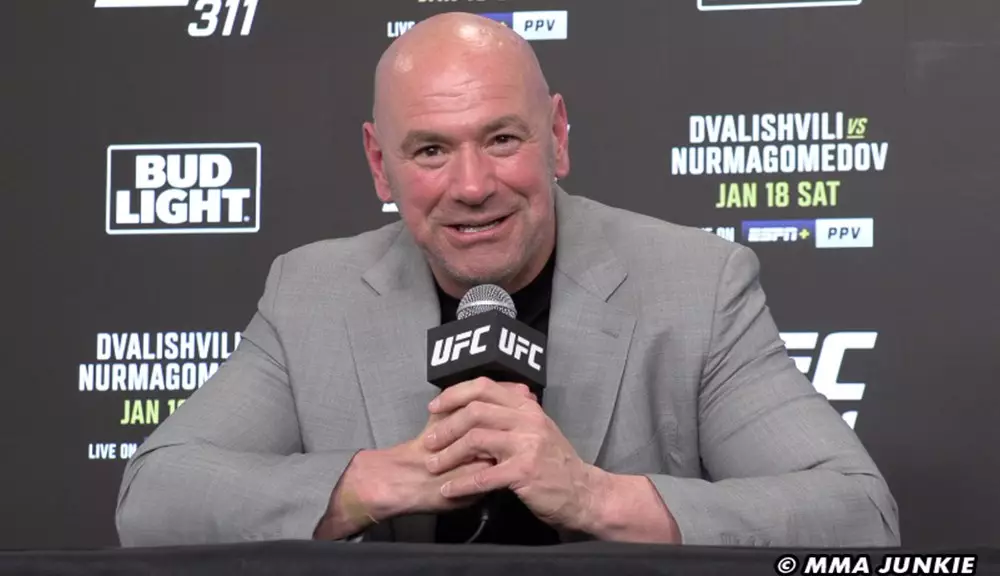In the dynamic landscape of mixed martial arts (MMA), the emergence of the Global Fight League (GFL) marks a significant shift in how combat sports are organized and promoted. Founded on a team-based format, the GFL aims to introduce fresh competition and excitement into an industry dominated by established players like the UFC. With a roster that features several notable fighters who have made their mark in the UFC—such as Chris Weidman, Luke Rockhold, and Tyron Woodley—the GFL is preparing to make its debut this April.
UFC CEO Dana White’s reaction to this new promotion brings an interesting perspective to the conversation. At a recent press conference, White expressed that he does not view the GFL as a competitor but rather as an opportunity for fighters. His comments illustrate a certain level of respect for the GFL’s financial backing, stating, “They’re throwing a lot of money around, and I love it. Good for the fighters; it’s good for them.” This acknowledgment suggests that while White may not see the GFL as a direct competitor, he is aware of its potential impact on the sport and its athletes.
What is particularly revealing in White’s comments is his broader view of competition. He indicated that the UFC’s rivals extend far beyond other combat sports, mentioning major sports leagues like the NFL, college football, and even the film industry. This underlines the notion that UFC is not just vying for attention within the realm of MMA but is also competing for entertainment dollars against a variety of leisure activities. White’s expansive definition of competition highlights the challenges the UFC faces in maintaining its market dominance.
Implications for Fighters and the Industry
The GFL’s introduction could potentially reshape the landscape for fighters, offering them a new platform to showcase their talents and earn competitive salaries. This is particularly important in an industry where pay disparity has been a significant topic. With promotions like the GFL investing in fighters and their futures, it could encourage existing organizations to reevaluate their compensation structures to retain talent.
Moreover, the presence of the GFL may inspire increased innovation and creativity in fight promotions. As organizations strive to stay relevant, fans can expect more dynamic events, enhanced viewing experiences, and diverse formats. The emphasis on team-based competition, as practiced by GFL, could appeal to a wider audience, making the sport more accessible to casual viewers and potentially bringing in a new generation of fans.
As Dana White and the UFC navigate this evolving landscape, the emergence of the Global Fight League may usher in a new era in combat sports. While White does not consider it a direct threat, the GFL’s rise signifies shifting dynamics within the industry. For athletes, this could translate into new opportunities and fairer compensation, while for fans, it promises a richer and more varied viewing experience. Ultimately, the growing competition could spur innovation that benefits everyone involved in the sport.

